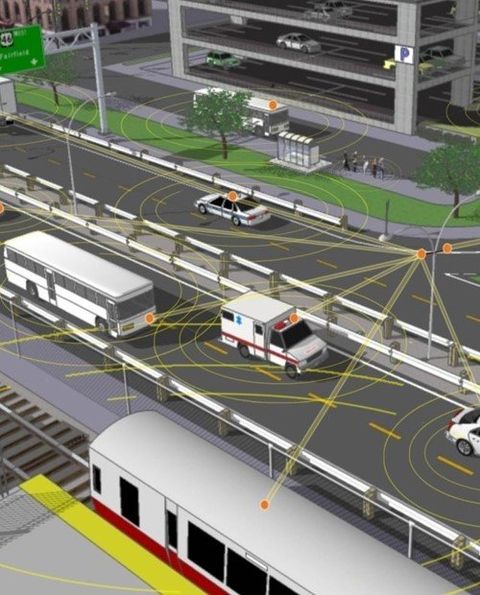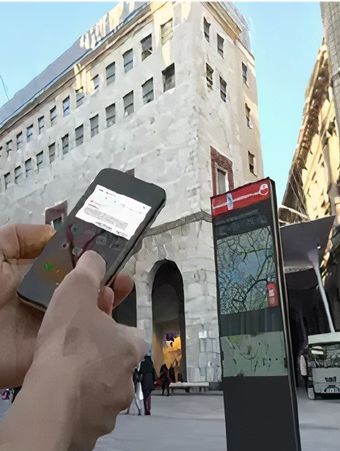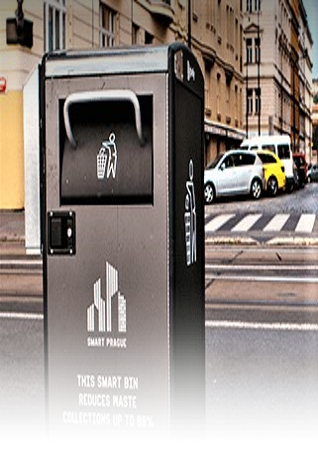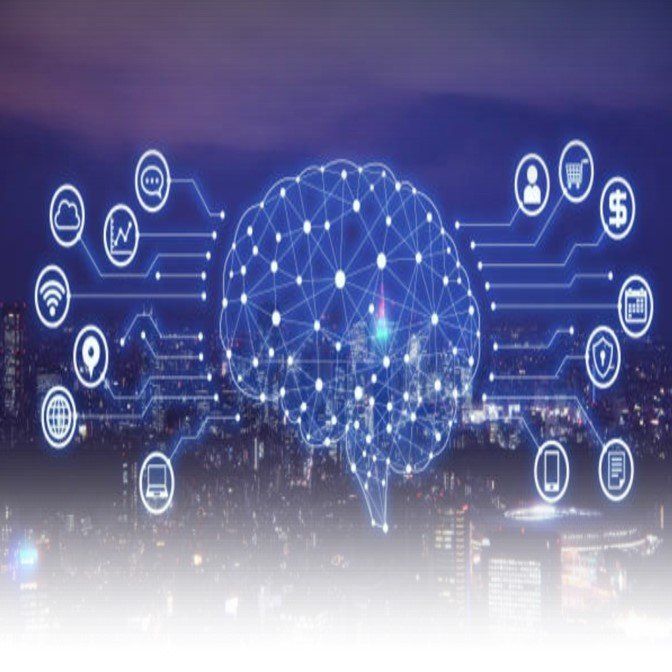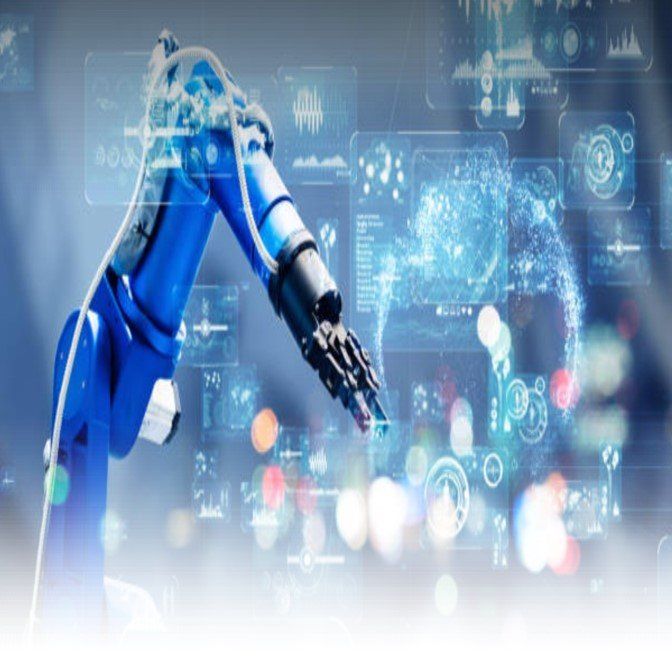Embrace Digital Solutions for a More Livable Future with Xenolytix
Tomorrow's cities will be more connected, more sustainable and more responsive to the needs of the humans who live in them. The idea of creating better cities is as old as human settlement. Smart Cities is our latest iteration, amidst the Fourth Industrial Revolution, now that we have exponentially more data and computing power available.
After a decade of trial and error, municipal leaders are realizing that smart-city strategies start with people, not technology. It is not just about adding ‘smarts’ by installing digital interfaces in traditional infrastructure or streamlining city operations; it is also about using technology and data purposefully to make better decisions and deliver a better quality of life.
A successful smart city will depend upon driving innovative solutions across six domains: economy, environment and energy, government and education, living and health, safety and security, and mobility. It is also about bringing together technology developers, urban planners, policy makers, and others involved in imagining, designing, and implementing Smart City solutions such as:
- Making transportation systems safer and more efficient
- Monitoring and responding to environmental health risks
- Improving healthcare access, quality, and outcomes
- Building resilience to climate change and other stressors
- Meeting the needs of aging populations
Today, cities are moving beyond the pilot stage and using data and digital technologies to deliver results that are more relevant and meaningful to residents. At Xenolytix, we understand the importance of becoming digital. We use the latest emerging technologies to transform cities and urban areas. At Xenolytix, we are teaming to build the cities of the future.
Traffic Management
Easing traffic congestion using Machine Learning and IoT
Transforming Tourism
Beacon Tech and IoT to deliver hyper-local and contextual information for virtual tours.
Waste Management
IoT-enabled smart trash cans to optimize waste collection schedules.
Air Quality
Using Data Science, IoT, and Machine Learning to monitor and mitigate pollution
Improving Quality of Life
We have long envisioned Smart Cities of the future where residents and visitors thrive. A positive quality of life involves enhancing every aspect of the daily existence of citizens. Clearly, the advantages of “smart” initiatives go beyond cost savings and efficiency improvements. From safe streets to green spaces, from a reasonable commute to access to art and culture, a smart city creates an environment that promotes the best of urban living and minimizes the hassles of city life.
Quality of life doesn’t measure just one aspect of urban living — from the time residents spend sitting in traffic, to how safe they feel walking around downtown, the metric has many dimensions. When implemented strategically, emerging technologies can have a measurable impact on qualitative factors as well. Solutions like predictive policing, intelligent traffic signals, smart parking, and data-driven public health interventions contribute to better living in the urban oasis.
The effective use of automation, artificial intelligence, cognitive computing, data sharing, analysis, and sensors definitely reduces several operating costs. IoT solutions effectively allow cooperation with public works and other utilities organizations, generating a new source of revenue. Smart Cities are also able to reduce fraud and promote better usage of the urban infrastructure. IoT sensors can now be placed inside garbage bins that take pictures of the contents, analyze them, and then optimize trash collection routes.
IoT, Computer Vision and Data Science models can help law enforcement and emergency services target their resources more effectively and create a safer environment.
Interactive kiosks around the city can allow visitors to search out streets, destinations, and points of interest. As tourists engage with public transit, hotels, restaurants and attractions, they generate data trails that smart cities can capture and follow. Smart City technology has the potential to generate a fully integrated calendar of events complete with ticket purchasing options that integrate to mobile wallet technology
Smart Cities will ultimately create a more liveable future.
Economic Revival & Competitiveness
Smart City technologies can have a dramatic impact on the prosperity of a region. Some experts project that over five years, smart cities can raise GDP per capita by 21 per cent and population growth by 13 per cent.
As human settlements, cities have long been important centers of trade and commerce, leveraging the proximity of so many diverse citizens to help drive an innovative economy. As populations in cities and towns increase, so do the challenges for sustainable economic development and basic community services. A smart city is a business-friendly city, ensuring that jobs and tax revenue form a healthy economic platform.
Investment in making cities smart can unlock economic growth. Municipal leader must have the right vision, plans, talent, and funding in place, to revive their economies in a sustainable manner.
Smart City initiatives can alleviate cities' challenges, thus, enhancing economic development. These initiatives could include:
- Machine Learning and IoT technologies automating city resources such as water and electricity, and saving significant amounts of money by doing so.
- IoT Sensors to monitor and reduce energy consumption and improve the environment.
- Improving the city’s performance with hyper-connectivity - connecting the urban ecosystem to deliver numerous benefits to stakeholders.
- Increasing Talent Inflow by making the city more liveable – a safe and happy place.
- Building Smarter Transportation with technologies like IoT, V2I (Vehicle-to-Infrastructure), and Blockchain
By creating an ideal environment for economic growth, city officials can attract businesses and investment to the city.
Sustainability
Urbanization is progressing quickly, and cities are becoming bigger and more resilient, but to truly thrive they need a stronger, smarter and greener energy system.
A sustainable ecosystem, with reduced emissions and cleaner cities, greatly increases the standards of living and happiness, and leads to economic growth. Smart Cities have emerged as a possible solution to sustainability given the rapid urbanization. They use ICTs and other means to improve quality of life, efficiency of urban operation and services, and competitiveness. They also ensure that they meet the needs of present and future generations with respect to economic, social, environmental as well as cultural aspects. Being a good steward of the environment and promoting sustainable consumption of natural resources should be part of the overall smart city vision.
Modern society faces a wide range of issues, and one of the greatest that human beings must solve in the 21st century is global warming. To limit temperature rises, we have to dramatically cut emissions.
Approximately 30% of a city’s traffic is caused by drivers actively searching for a parking spot. These vehicles emit carbon-dioxide, slow traffic, and elevate stress amongst city dwellers. Smart parking can reduce traffic by making it easier to locate empty parking spaces. By combining the use of IoT sensors, intelligent street lights, smart navigation systems, and online payment platforms, cities can improve the living conditions and inch towards a more sustainable city.
Using IoT sensors and Machine Learning, cities can make buildings more intelligent, saving on energy costs and pollution. Microgrids allow predictive maintenance and are particularly promising for ensuring resilience in the energy demands of cities.
AI-enabled drones or autonomous flying and similar objects can be used to monitor the air quality and pollution causing traffic congestion. Other sensors can be used for water and waste management. Using NLP and sentiment analysis, cities can understand the needs and concerns of their residents and develop programs to enhance sustainability.
Sustainable, resilient cities bring benefits to residents and investors.
EXPERTISE IN SMART CITIES
-
MACHINE LEARNING
LEARN MOREAccelerate Your Business
-
BLOCKCHAIN
LEARN MOREGet Greater Transparency
-
DATA SCIENCE
LEARN MORETransform Data Into Value
-
CLOUD APPS
LEARN MORESpeed. Reusability. On-Demand Infrastructure.
-
NLP
LEARN MOREImprove Customer Experience.
-
IoT
LEARN MOREAccess Information in Real-Time
Let's Connect
Take the first step by speaking with one of our experts today.
Contact Us
We will get back to you as soon as possible.
Please try again later.

